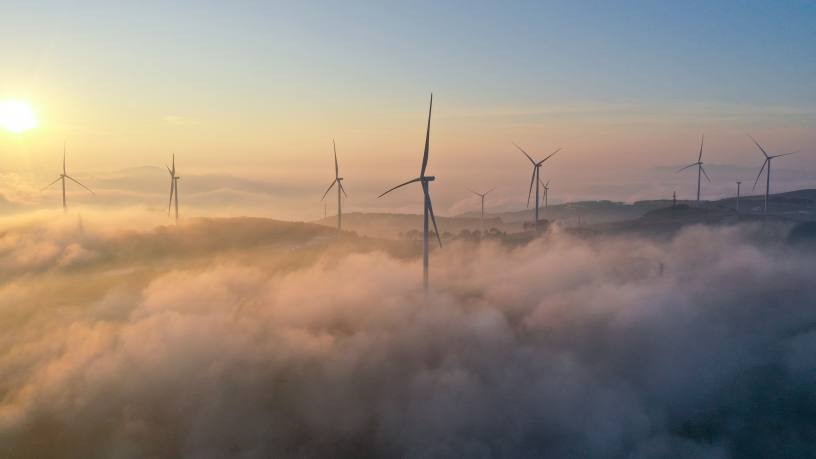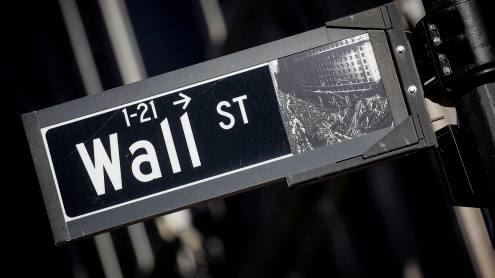World Bank president David Malpass caused controversy at New York Climate Week when asked his opinion on global warming. During a panel discussion on September 20, when questioned if he accepted the scientific consensus that humans burning fossil fuels were “rapidly and dangerously warming the planet”, Mr Malpass said: “I don’t even know – I’m not a scientist and that is not a question.”
Mr Malpass side-stepped attempts by the moderator to get a fuller answer, but former US vice-president and long-time climate activist Al Gore was more forthcoming, saying: “This is ridiculous to have a climate denier as the head of the World Bank.”
When two days later, CNN challenged Mr Malpass about Mr Gore’s allegation of climate denial, he said: “I don’t know the political motivations behind that. It’s clear that greenhouse gas emissions are coming from manmade sources, including fossil fuels, methane, agricultural uses and industrial uses. And so, we’re working hard to change that.”
Mr Malpass agreed fossil fuel emissions were “clearly” contributing to global warming, and rejected the allegation, saying: “I’m not a denier.” He suggested in his defence that his message had been “tangled” and that he was “not always good at conveying” what he means. “I don’t always do the best job in answering the questions or hearing what the questions are,” he said.
Since then, however, the gloves have been off, with voices from around the world calling for his resignation. More importantly, it has pulled the focus sharply on to the role of multinational development banks (MDBs).
Familiar theme
The “I’m not a scientist” line in response to questions about climate change is a trope that has been used by various US Republicans. Democrat senator Jeff Merkley from Oregon took to Twitter to compare Mr Malpass to Amy Coney Barrett who, when grilled about her views on global warming before being nominated to the US Supreme Court in 2020, said: “I’ve read about climate change. I’m certainly not a scientist.”
As a long-time Republican insider – and Donald Trump nominee to head the World Bank – Mr Malpass’s climate credentials have been in the frame since he took up his post in April 2019. Traditionally, the US chooses the head of the World Bank and European leaders choose that of its sister institution, the International Monetary Fund (IMF). Many feared the worst, but under Mr Malpass’s leadership the World Bank has remained the largest multilateral financier of initiatives to adapt to or mitigate the consequences of climate change, investing a total $83bn between 2016 and 2020. In total, climate finance committed by eight of the major MDBs in 2020 amounted to a total of $66bn, up from $61.6bn the previous year and $27.4bn in 2016.
if you don’t understand the impact of climate change on developing countries, you just cannot lead the world’s top development institution
The World Bank also more than doubled its commitment to the cause for 2021 to 2025 – its Climate Action Plan counts on $200bn. Earlier this month, it said it had provided a record $31.7bn in the 2022 fiscal year to help countries address climate change.
Whether the mask has now slipped, or Mr Malpass genuinely is not adept at expressing what he thinks, his position is looking increasingly untenable. “If you don’t understand the impact of climate change on developing countries, you just cannot lead the world’s top development institution. Punto,” tweeted Christiana Figueres, the Costa Rican diplomat and a key architect of the 2015 Paris Agreement.
It is “unacceptable” that the head of any global institution has “even a whiff of climate denial”, about them, says Sonia Dunlop, programme leader of public banks at E3G, a UK-based think tank. She likens the situation to having an “anti-vaxxer” at the head of the World Health Organization: “They would be replaced immediately.”
At odds with the administration
The White House has not spoken publicly about the matter, but US president Joe Biden is clear that climate action is a priority for his administration. Further, John Kerry, the US special presidential envoy for climate, was outspoken at New York Climate Week about the need for the World Bank and the other institutions, including the IMF, created with the Bretton Woods agreement nearly eight decades ago, to undergo “major reform and a major restructuring”, as reported by the Financial Times, which earlier this year also revealed that the US Treasury had written to the World Bank complaining about lack of adequate climate efforts.
Mr Kerry said he could not comment on Mr Malpass directly, but highlighted that the African Development Bank allocates about 67% of its lending to climate, and that the Asian Development Bank and the European Development Bank were “doing pretty well”.
More broadly, in July the G20 published an independent review of MBDs’ capital adequacy frameworks, indicating ways in which to maximise their financing. At the time of the release, Indonesia’s finance minister Sri Mulyani Indrawati said: “MDBs have a critical role in providing affordable financing to support economic recovery and to help achieve Sustainable Development Goals (SDGs) in a post-pandemic context.”
In May, Egypt’s finance minister Mohamed Maait told a group of journalists and investors in London that he was generally concerned about the costs of raising funds to transition towards a greener economy and commented on the responsibility of developed countries in dealing with climate change. Across Africa, he said, “we are poor countries, we’re not responsible for this problem – why should we pay [to deal with climate change]?” He had also expressed concerns over the role of development banks.
Ms Dunlop at E3G agrees Mr Kerry is right that much more needs to change in the MDB ecosystem than simply the president of the World Bank, and calls for leaders to “rethink the design and model” of these banks. Many have “a tendency to approve the same type of loans” with staff “incentivised to get the money out of the door quickly”, she says. “Billions [of dollars] are good, but we need to unleash trillions” to support climate change mitigation and adaptation.
As for the World Bank specifically, she says, in addition to “good climate financing”, it must stop financing – or enabling through research or development work – fossil fuel projects and take a “more strategic” approach to climate change. The bank’s “country offices and directors are powerful and the extent to which climate action is mainstreamed often depends on them and what specific governments ask for”, she adds, and it “needs to see the bigger picture, not just respond to wish lists”.
Experts say the European Investment Bank (EIB) is the MDB that has probably done the most to mainstream climate change across its operations, to the extent of branding itself at the EU climate bank. Credit for this should go in no small measure to its president, Werner Hoyer, who is clear in his acceptance of climate science and the EIB’s role in helping overcome the climate crisis; however, his mandate ends next year.
Whoever replaces Mr Hoyer – and the thorny question of whether Mr Malpass remains or not at the World Bank – is likely to determine climate action financing the world over.
Additional reporting from Silvia Pavoni. This article first appeared in Sustainable Views, the Financial Times Group’s platform on ESG policy and regulation.












